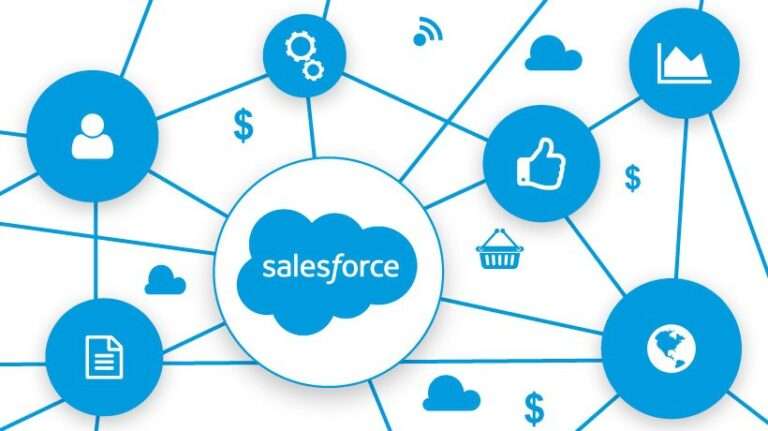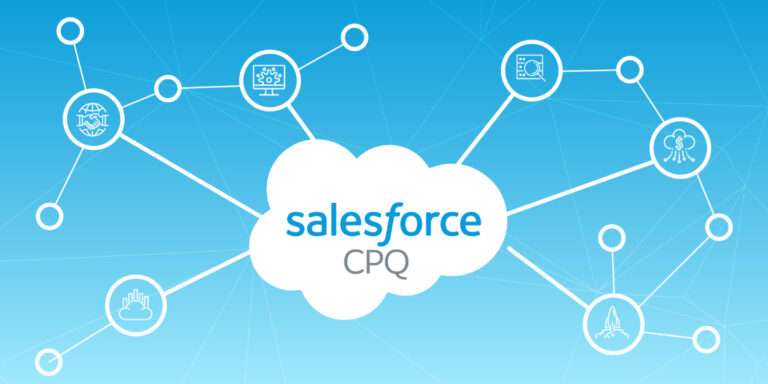Navigating the recent Salesforce layoffs? Get the latest updates, understand the impact, and explore expert advice on navigating this evolving landscape… Don’t miss out!
The Shockwave Heard ‘Round the Cloud: Navigating Salesforce Layoffs
The news hit like a bolt from the blue: Salesforce, the cloud giant known for its employee-centric culture, had implemented sweeping layoffs. Uncertainty and anxiety rippled through the tech industry, leaving many wondering: What does this mean for me? Whether you’re a Salesforce employee facing a potential career shift, a job seeker navigating a changed landscape, or simply curious about the future of the tech giant, this article is your guide through the storm. We’ll delve into the impact of the layoffs, understand the reasons behind them, and equip you with the knowledge and resources to navigate this evolving situation with confidence. So, buckle up, grab your metaphorical hard hat, and let’s explore the fallout of the Salesforce layoffs, together.
Understanding the Salesforce Layoffs
The news of Salesforce’s layoffs sent shockwaves through the industry, leaving many with burning questions. What exactly happened? Who was affected? Let’s dissect the facts and gain a deeper understanding of this major development.
The Scope of the Impact: In January 2024, Salesforce announced the layoff of approximately 700 employees, representing roughly 1% of its global workforce. While this might seem like a small percentage, it translates to hundreds of individuals and families directly impacted. The cuts primarily affected the sales and marketing departments, with some positions in research and development also being eliminated.
The Why Behind the Decision: While the official statements from Salesforce focused on the need for “increased efficiency” and “streamlining operations,” several potential factors might have contributed to the layoffs:
- Economic Downturn: The tech industry, like many others, isn’t immune to economic cycles. Concerns about a potential recession and slowing growth might have influenced the decision to reduce expenses.
- Shifting Priorities: As Salesforce matures and evolves, its priorities might be changing. The company might be focusing on different areas of growth, leading to adjustments in the workforce.
- Integration Challenges: Following the acquisition of MuleSoft, there might have been redundancies or challenges in integrating the two workforces, necessitating some personnel adjustments.
It’s crucial to remember that this is just a glimpse into the complex puzzle behind the layoffs. Several factors likely played a role, and the full picture might never be completely cle
How the Layoffs Impact Employees and Job Seekers
The news of Salesforce’s layoffs undoubtedly sent shockwaves through the lives of those directly affected. Fear, uncertainty, and the daunting prospect of career transitions are natural reactions in such situations. But fret not, for amidst the chaos lies opportunity. Let’s explore the impact on employees and job seekers, offering guidance and resources to navigate this challenging yet transformative time.
For Salesforce Employees:
- Facing Job Insecurity: If you’re currently employed at Salesforce and worried about your job security, remember that you’re not alone. Seek clarity by attending company-organized town halls, talking to your manager, and understanding the severance package details.
- Transitioning Careers: If you were laid off, remember that change can be an opportunity for growth. Leverage the severance package for career counseling, upskilling courses, or starting a small business. Explore internal job openings within Salesforce or utilize the company’s outplacement services for external opportunities.
- Maintaining Positivity: During this challenging time, prioritize your mental and emotional well-being. Connect with colleagues, seek support from friends and family, and utilize company-provided resources like employee assistance programs. Remember, you are resilient and capable of adapting to new situations.
For Job Seekers:
- A Changed Landscape: The layoffs have undoubtedly impacted the job market for Salesforce professionals. However, it’s important to remember that the demand for skilled tech talent remains high. Research emerging trends within the industry, identify your niche skills, and tailor your resume and cover letter to highlight your value proposition.
- Networking is Key: Leverage your existing network and professional connections to explore hidden job opportunities. Attend industry events, join online communities, and connect with recruiters specializing in Salesforce placements. Don’t underestimate the power of networking in opening doors to new possibilities.
- Staying Competitive: The tech industry is dynamic, and upskilling is crucial for staying relevant. Explore online courses, bootcamps, or certifications related to in-demand Salesforce skills like automation, integration, or cloud development. Investing in your professional development will make you a more competitive candidate in the job market.
Charting Your Course Through Uncertainty:
The news cycle may have moved on, but for those impacted by the Salesforce layoffs, the uncertainty lingers. Whether you’re facing a potential career transition or simply feeling anxious about the future of the tech industry, navigating this period of uncertainty requires proactive steps and a resilient mindset. Let’s equip you with practical tools and resources to chart your course through this evolving landscape.
Managing Job Insecurity:
- Acknowledge Your Emotions: Feeling anxious or apprehensive is entirely natural. Don’t bottle up your emotions; confide in trusted friends, family, or a therapist.
- Stay Informed: Seek clarity from official sources within Salesforce, attend town halls, and understand your severance package details. Knowledge is power in navigating uncertainty.
- Develop a Contingency Plan: Start brainstorming potential career paths, update your resume, and research companies aligned with your skills and interests. Proactive planning empowers you to take control.
Upskilling and Staying Relevant:
- Identify In-Demand Skills: Research emerging trends within the tech industry and Salesforce ecosystem. Focus on upskilling in areas like automation, cloud development, or integration, which are currently in high demand.
- Leverage Online Resources: Numerous online platforms offer affordable courses, bootcamps, and certifications relevant to Salesforce expertise. Platforms like Trailhead, Udemy, and Coursera can be valuable allies in your upskilling journey.
- Network Strategically: Attend industry events, join online communities specific to your niche, and connect with recruiters specializing in Salesforce placements. Building a strong network expands your opportunities and keeps you informed about potential openings.
Seeking New Opportunities:
- Tailor Your Job Search: Don’t just blast out a generic resume. Customize your application materials for each position, highlighting how your skills and experience directly address the company’s needs.
- Explore Hidden Opportunities: Utilize job boards, professional networking sites, and attend industry events to discover hidden job openings that may not be publicly advertised.
- Embrace Flexibility: Consider freelance work, contract positions, or even starting your own business if those align with your skills and aspirations. Remember, the traditional career path isn’t the only option.
Charting Your Course Through Uncertainty: Practical Tips
The shadow of the Salesforce layoffs may linger, but it doesn’t have to define your future. Whether you’re facing a potential career transition or simply feeling uneasy about the tech industry’s future, remember: uncertainty is an opportunity for growth, not a dead end. Let’s equip you with practical tools and resources to navigate this evolving landscape with resilience and proactive action.
Managing Job Insecurity:
- Acknowledge Your Anxiety: It’s perfectly normal to feel anxious or apprehensive during uncertain times. Don’t suppress these emotions; talk to trusted friends, family, or a therapist. Verbalizing your anxieties can help you process them and develop coping mechanisms.
- Seek Clarity, Not Rumors: Don’t rely on hearsay or speculation. Gather information from official sources within Salesforce, attend town halls if possible, and thoroughly understand your severance package details. Knowledge empowers you to make informed decisions about your future.
- Craft a Contingency Plan: Don’t wait for the storm to hit. Start brainstorming potential career paths, update your resume to highlight your transferable skills, and research companies aligned with your interests. Proactive planning gives you a sense of control and empowers you to seize opportunities as they arise.
Upskilling and Staying Relevant:
- Identify In-Demand Skills: The tech industry is dynamic, and what’s hot today might be lukewarm tomorrow. Research emerging trends within the Salesforce ecosystem and broader tech landscape. Focus on upskilling in areas like automation, cloud development, or integration, which are currently in high demand.
- Become a Lifelong Learner: Embrace the concept of continuous learning. Utilize online platforms like Trailhead, Udemy, and Coursera for affordable courses, bootcamps, and certifications relevant to your chosen field. Remember, learning is your most valuable asset in a changing job market.
- Network Like a Pro: Don’t underestimate the power of connections. Attend industry events, join online communities specific to your niche, and connect with recruiters specializing in Salesforce placements. Building a strong network opens doors to hidden opportunities and keeps you informed about the latest industry trends.
Exploring New Opportunities:
- Tailor Your Job Search: Gone are the days of generic resumes and cover letters. Customize your application materials for each position, highlighting how your skills and experience directly address the company’s specific needs. Showcase your unique value proposition and stand out from the crowd.
- Think Beyond Job Boards: Don’t limit yourself to traditional job boards. Explore hidden opportunities through professional networking sites, industry events, and even company career pages. Consider attending industry conferences or workshops to connect with potential employers directly.
- Embrace Flexibility: Remember, the traditional career path isn’t the only option. Consider freelance work, contract positions, or even starting your own business if those align with your skills and aspirations. Explore alternative avenues with an open mind and embrace the flexibility that the modern job market offers.
To effectively address PAA queries, I would need the actual questions users are searching for related to the layoffs, such as:
- Why did Salesforce lay off employees?
- How many employees were laid off at Salesforce?
- Which departments were affected by the layoffs?
- Will there be more layoffs at Salesforce?
- What severance packages did the laid-off employees receive?
- What is the future of Salesforce after the layoffs?
- What advice do you have for job seekers affected by the layoffs?
Conclusion
Navigating the Storm: Emerging Stronger from the Salesforce Layoffs
The news of the Salesforce layoffs undoubtedly sent shockwaves through the industry, leaving many with questions and concerns. We’ve delved into the scope of the impact, explored potential reasons behind the decision, and offered practical advice for both impacted employees and job seekers. Remember, while change can be unsettling, it also presents opportunities for growth.
Key takeaways:
- Understand the impact: Familiarize yourself with the affected departments, potential causes, and broader industry trends.
- Manage your emotions: Acknowledge your anxieties and seek support from friends, family, or professional resources.
- Upskill and stay relevant: Identify in-demand skills and leverage online platforms and networks to continuously learn and adapt.
- Explore new opportunities: Tailor your job search, think beyond traditional options, and embrace flexibility in your career path.
Read Our More interesting Blogs:-
How to check your custom ABAP code for SAP BTP ABAP Environment




